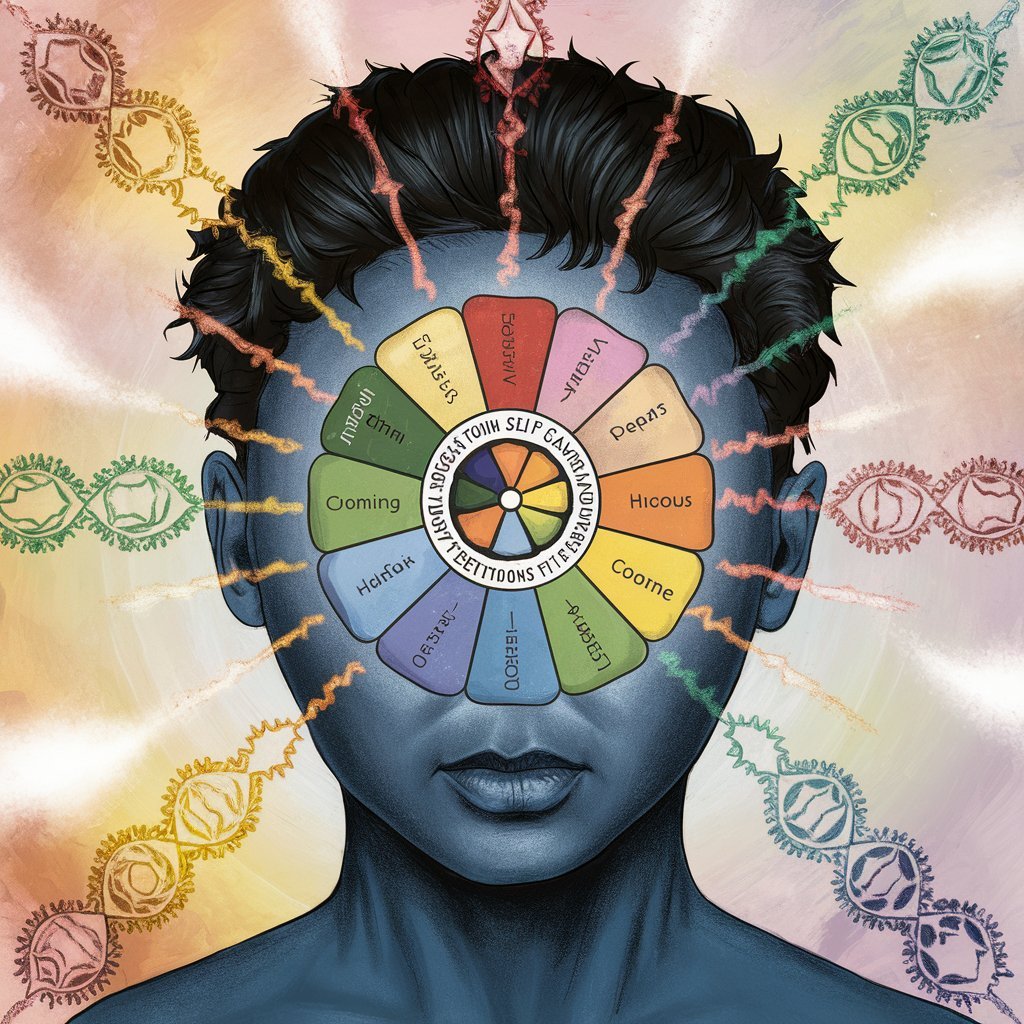Self-Care and Emotional Intelligence: Understanding Your Feelings
Hey there, my young and curious friends of 2024! It’s your favorite self-care explorer, Nita Sharda, here to take you on an exciting journey into the world of self-care and emotional intelligence. Now, I know what you might be thinking – “Emotional intelligence? Isn’t that just a fancy word for understanding feelings?” But trust me, there’s so much more to it than that!
Today, we’re going to put on our explorer hats and discover what self-care and emotional intelligence are all about, and how they can help us understand and manage our feelings in healthy ways. But before we dive in, let me make one thing clear – this is not about putting anyone on the spot or making them feel like they need to be perfect. It’s simply about empowering you with the knowledge and tools to take care of yourself emotionally and build strong, healthy relationships with others.
So, are you ready to join me on this self-care and emotional intelligence adventure? Let’s go!

What is Self-Care?
First things first, let’s talk about what self-care actually is. Self-care is the practice of taking care of ourselves – physically, mentally, emotionally, and spiritually. It’s about doing things that make us feel good, help us recharge, and support our overall wellbeing.
Self-care can look different for everyone, but some common examples include:
- Getting enough sleep and rest
- Eating nutritious foods that fuel our bodies
- Exercising and moving our bodies in ways that feel good
- Taking breaks and doing things we enjoy, like reading, playing, or creating art
- Practicing relaxation techniques like deep breathing or meditation
- Expressing our feelings and needs in healthy ways
- Setting boundaries and saying no when we need to
The key to self-care is listening to our bodies and minds, and doing what feels right for us in the moment. It’s not about being selfish or indulgent, but rather about taking responsibility for our own wellbeing so that we can show up as our best selves in all areas of our lives.
Why is Self-Care Important?
So, why is self-care so important, especially for young people like you? Here are a few key reasons:
It Helps Us Manage Stress and Anxiety
Let’s face it – life can be stressful sometimes, even for kids. Between school, extracurricular activities, family responsibilities, and social pressures, it’s easy to feel overwhelmed and anxious at times.
Self-care practices can help us manage stress and anxiety by giving us tools to calm our minds and bodies, and helping us build resilience in the face of challenges. When we take care of ourselves regularly, we’re better equipped to handle the ups and downs of life with grace and ease.
It Supports Our Physical Health
Taking care of our physical health is an important part of self-care. When we eat nutritious foods, get enough sleep and exercise, and practice good hygiene, we’re giving our bodies the fuel and support they need to function at their best.
This is especially important for young people like you, whose bodies and brains are still developing. By establishing healthy habits early on, you’re setting yourself up for a lifetime of physical health and wellbeing.
It Boosts Our Mood and Self-Esteem
Self-care practices can also have a big impact on our mood and self-esteem. When we do things that make us feel good and take care of ourselves, we’re sending a message to ourselves that we matter and that we’re worthy of love and care.
This can be especially important for young people who are still figuring out who they are and where they fit in the world. By practicing self-care regularly, you’re building a strong foundation of self-love and self-respect that can carry you through even the toughest times.
What is Emotional Intelligence?
Now that we’ve talked about self-care, let’s explore the concept of emotional intelligence. Emotional intelligence, or EQ for short, is the ability to understand and manage our own emotions, as well as the emotions of others.
Emotional intelligence involves several key skills, including:
- Self-awareness: The ability to recognize and understand our own emotions and how they impact our thoughts and behaviors.
- Self-regulation: The ability to manage our emotions in healthy ways, even in challenging situations.
- Empathy: The ability to understand and relate to the emotions of others, and to respond with compassion and kindness.
- Social skills: The ability to build and maintain positive relationships with others, and to communicate effectively and respectfully.
Emotional intelligence is important because it helps us navigate the complex world of emotions and relationships with greater ease and success. When we have a strong foundation of emotional intelligence, we’re better equipped to handle challenges, build strong connections with others, and lead fulfilling lives.
Why is Emotional Intelligence Important?
So, why is emotional intelligence so important, especially for young people like you? Here are a few key reasons:
It Helps Us Understand and Manage Our Emotions
One of the key benefits of emotional intelligence is that it helps us understand and manage our own emotions in healthy ways. When we’re able to recognize and name our emotions, we’re better equipped to respond to them in ways that support our wellbeing and growth.
For example, if we’re feeling angry or frustrated, emotional intelligence can help us identify the root cause of those feelings and find healthy ways to express and release them, like talking to a trusted friend or engaging in a calming activity.
It Helps Us Build Strong Relationships with Others
Emotional intelligence is also important for building strong, healthy relationships with others. When we have a strong foundation of empathy and social skills, we’re better equipped to understand and relate to the emotions and experiences of others, and to communicate and interact with them in respectful and compassionate ways.
This can be especially important for young people who are still learning how to navigate the complex world of social relationships. By developing emotional intelligence skills early on, you’re setting yourself up for a lifetime of positive, fulfilling connections with others.
It Helps Us Succeed in School and Beyond
Finally, emotional intelligence is important for success in school and beyond. When we have a strong foundation of emotional intelligence, we’re better equipped to handle the challenges and stresses of academic and professional life, and to build positive relationships with teachers, peers, and colleagues.
Research has shown that emotional intelligence is a key predictor of success in many areas of life, from academic achievement to career advancement to overall life satisfaction. By developing emotional intelligence skills early on, you’re setting yourself up for a lifetime of success and fulfillment.
Understanding Your Feelings through Self-Care and Emotional Intelligence
So, how can we bring self-care and emotional intelligence together to better understand and manage our feelings? Here are a few key strategies:
Practice Self-Awareness
The first step in understanding our feelings is to practice self-awareness. This means taking the time to tune in to our emotions and physical sensations, and to observe them without judgment or criticism.
Some ways we can practice self-awareness include:
- Checking in with ourselves throughout the day and asking, “How am I feeling right now?”
- Keeping a feelings journal where we write down our emotions and experiences
- Practicing mindfulness or meditation to cultivate present-moment awareness
- Paying attention to our physical sensations, like tension in our bodies or changes in our breathing
By practicing self-awareness regularly, we can develop a deeper understanding of our emotions and how they impact our thoughts and behaviors.
Identify and Name Your Emotions
Once we’ve developed self-awareness, the next step is to identify and name our emotions. This means putting words to our feelings and experiences, and acknowledging them without judgment or criticism.
Some common emotions we might experience include:
- Happiness or joy
- Sadness or grief
- Anger or frustration
- Fear or anxiety
- Excitement or anticipation
By identifying and naming our emotions, we can develop a greater sense of clarity and control over our experiences, and begin to explore healthy ways to express and manage them.
Practice Self-Regulation
Self-regulation is the ability to manage our emotions in healthy ways, even in challenging situations. This means finding ways to express and release our emotions that support our wellbeing and growth, rather than suppressing or ignoring them.
Some strategies for practicing self-regulation include:
- Taking deep breaths or counting to ten when we feel overwhelmed or upset
- Engaging in calming activities like drawing, writing, or listening to music
- Talking to a trusted friend or family member about our feelings
- Setting boundaries and saying no when we need to
By practicing self-regulation regularly, we can develop greater emotional resilience and flexibility, and learn to navigate life’s challenges with greater ease and grace.
Cultivate Empathy and Social Skills
Finally, understanding our own emotions is just the first step – we also need to develop empathy and social skills to build strong, healthy relationships with others.
Some strategies for cultivating empathy and social skills include:
- Practicing active listening and reflecting back what others are saying
- Asking open-ended questions to better understand others’ perspectives and experiences
- Offering support and validation when others are struggling or in need













Leave a Reply